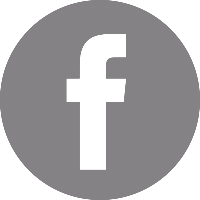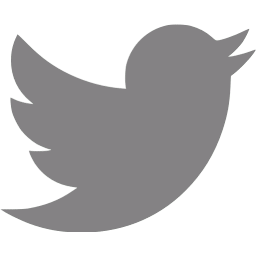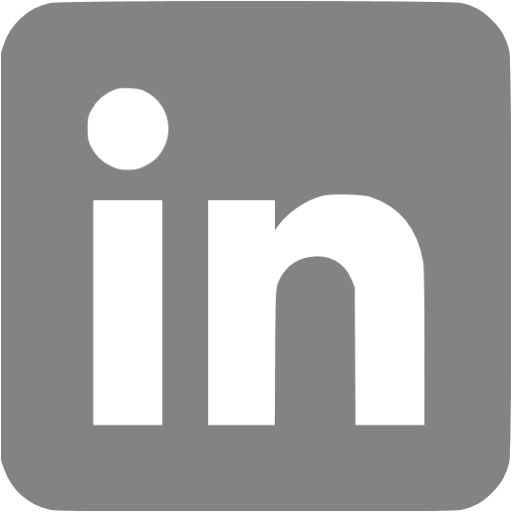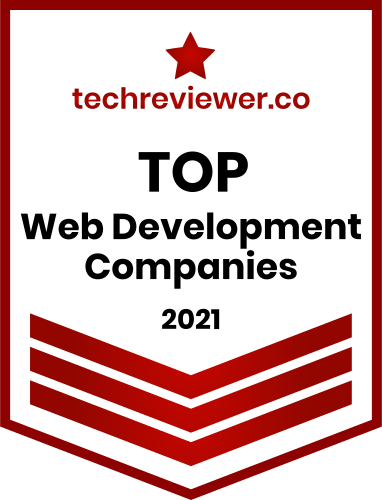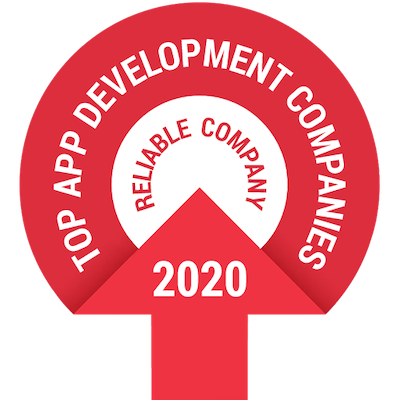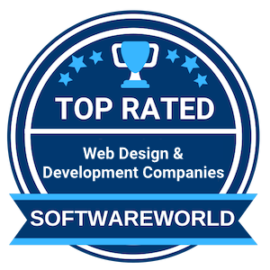
Manage Your Energy, Not Your Time - A Leader’s Guide to Energy Management
If you want to increase your efficiency at work, your first idea might be to improve your time management skills.
However, your time - especially at work - is a very limited resource.
Your energy, on the other hand, can be managed in such a way that you have more time and energy to finish your weekly goals successfully without experiencing burnout in the long run.
How do you manage your energy, not your time?
James Stanier, Director of Engineering at Shopify shares his secrets on energy management. He talks about setting yourself up for success by planning for the unexpected, goal- and achievement tracking and keeping your calendar under control.
This blog post was written based on episode 73 of the Level-up Engineering podcast hosted by Karolina Toth.
This post covers:
- Reasons to manage your energy, not your time
- Avoiding burnout
- Becoming available for your family
- Slowing down
- Seeing good examples
- Tips to manage your energy
- Optimize for output
- Change your habits
- Aspects of managing your energy, not your time
- Individual differences
- Routines
- Control
- Kindness
- Refocusing
- Mindful planning
- Energy management for senior leaders vs. ICs
- Similarities and differences
- Personal responsibility
- Honesty
- Communication with colleagues while managing your energy
- Manager
- Direct reports
- Bonus advice
- Work-life balance
- The second mountain
- About James Stanier
Manage Your Energy, Not Your Time - A Leader’s Guide to Energy Management
If you want to increase your efficiency at work, your first idea might be to improve your time management skills.
However, your time - especially at work - is a very limited resource.
Your energy, on the other hand, can be managed in such a way that you have more time and energy to finish your weekly goals successfully without experiencing burnout in the long run.
How do you manage your energy, not your time?
James Stanier, Director of Engineering at Shopify shares his secrets on energy management. He talks about setting yourself up for success by planning for the unexpected, goal- and achievement tracking and keeping your calendar under control.
This blog post was written based on episode 73 of the Level-up Engineering podcast hosted by Karolina Toth.
This post covers:
- Reasons to manage your energy, not your time
- Avoiding burnout
- Becoming available for your family
- Slowing down
- Seeing good examples
- Tips to manage your energy
- Optimize for output
- Change your habits
- Aspects of managing your energy, not your time
- Individual differences
- Routines
- Control
- Kindness
- Refocusing
- Mindful planning
- Energy management for senior leaders vs. ICs
- Similarities and differences
- Personal responsibility
- Honesty
- Communication with colleagues while managing your energy
- Manager
- Direct reports
- Bonus advice
- Work-life balance
- The second mountain
- About James Stanier
Why did you start managing your energy instead of your time?

Burnout
I put too much work into my previous job. I was living by my work calendar, I didn’t have a proper work-life balance, and I burnt out several times from overworking myself. When I wasn’t working, I caught myself thinking about work, and it became a very distracted existence.
I realized that I cannot keep up working like this until retirement, and I can’t keep that intensity up forever, because I will be highly stressed for decades. I moved to Shopify, where they have a forward-thinking culture about remote work and autonomy, which enables me to focus on other parts of my life as well.
I have flexibility over my calendar. I’m in a high-intensity environment, but I have more time than I used to. I have noticed that my previous habits didn’t suit my current situation, and I realized that managing my energy was more important than managing my time.
Family
I started focusing on energy management because my father got very ill, and I wanted to be there for my family. These events make you think about how you want to spend your time, what you want to feel like, and how you want to be around your family and friends. I realized I didn’t want to be a distracted, busy, stressed person forever.
Slowing down
I realized that I’m not in a sprint. There is no end game I’m trying to get to, and there will always be new things to get done. With this mindset, I was able to aim for a sustainable pace instead of always being in a rush.
Seeing good examples
When I did my PhD, I was struggling with managing my time. It’s easy to burn out or go off the rails as a PhD student, because you have to do everything on your own or with little support.
I wanted to learn how to manage my time effectively, so I asked my professor how he was doing it. He told me that most of his days consisted of researching and teaching, so he optimized his time for his output. If he had an exceptionally unproductive day, and he felt like he wasn’t making progress in his research no matter how hard he tried, he called it a day and spent time on something else instead. When he was in flow, he worked longer for that day, because he felt good about it.
How can you manage your energy, not your time?

Optimize for output
Rather than focusing on time management, focus on what you’re aiming towards, and manage your energy accordingly. If you’re optimizing your time, you’re looking at your calendar and you’re trying to fill in all the gaps with something productive.
It can be counterproductive, because you don’t give yourself a break or some prep time between activities. You might end up burning out, because you tried to squeeze so many tasks into one day. As you approach the end of the week, you might feel exhausted.
On the other hand, managing your energy is about focusing on the output you want, and prioritize your tasks each day to achieve your goals.
Change your habits
Set realistic expectations for the week
On Monday, set your priorities for the week. Think about what accomplishments would make you satisfied with your work on Friday afternoon, and list your tasks accordingly.
Remember that in a typical workday, you have about 4-5 hours of intense concentration for tasks like writing a design document, writing and reviewing code or scrutinizing a proposal. The workday is longer, but tasks like reading Slack messages and emails aren’t high-intensity work, so they take up the rest of the day.
Knowing you have this battery of intense concentration, you can check your calendar and line up your activities to maximize your outcome. Maybe you have 3 hours of meetings, and a document to write. Those can be your goals for the day, and you can give yourself the remaining time to read messages or help people who need you.
Don’t try to do all your tasks on Monday and Tuesday. You’ll exhaust yourself by Wednesday. Scheduling your goals for the whole week is better than trying to maximize your productivity every single minute of every day.
Evaluate your week on Friday
At the end of the week, I write an update to my manager and my peers to summarize what I’ve accomplished in that week. It keeps me accountable throughout the week. If something interesting has happened, or I found a topic worth exploring, I’ll also include it in this update.
This is especially important if you’re doing managerial work where you’re not delivering tangible products. You can easily forget that you’ve done something important, and feel unproductive later as a result. These Brag Documents help you remember your weekly input.
What are other aspects of managing your energy?

Know what works for you
Some people love structure. They love to work at the same hours every day, and put their laptop away outside of their working hours.
Others blend work and life throughout the day, and it works for them. Knowing what works best for you is important.
Have a routine
I’m most productive in the morning hours. I get up, walk the dog, and have some breakfast.
Exercise is very important for me, so I walk the dog in the morning, and I do 20-30 minutes of exercise in my lunch break. It keeps me from being glued to my desk all day, and from watching Slack and email all day. It helps me get away from a reactive mentality, and moves me toward the mentality that I am in control of my day.
By the time I sit down to start my workday, I feel good about the day, and I can focus. A lot of my colleagues are in different time zones, so I’m also less likely to be interrupted in the morning, so I can concentrate on reviewing pull requests, proposals and writing documents. Then I can balance my day with meetings and conversations in the afternoon.
Take control
Sometimes, you might feel guilty for not reading or reacting to messages right away, but in the long run, it’s better to take control of your own input and output. It can include not replying to messages after your work hours, stepping away from your computer, and spending your non-work hours however you want to.
It can be challenging to set these boundaries for yourself, especially if you and your team work in different time zones. You can end up being sucked back into work after your day is already finished, and it drains your energy. Setting up boundaries and sticking to them is crucial to manage your energy.
Be kind to yourself
Sometimes, you might not get enough sleep before work. Being tired can make you feel terrible internally, and it exacerbates inconveniences throughout your day. You might also be harder on yourself for being tired, and you might set unrealistic expectations for yourself to compensate for the fact that you aren’t doing your best that day.
In these cases, turning towards rest and giving yourself breaks isn’t always the default mentality.
People in tech are autonomous and driven to do their tasks, but they tend to overwork themselves as a result. There’s a famous adage about this issue: if you’re stuck on a bug that seems impossible to fix, just go to bed and look at it the next day. You’ll come back to it well-rested and fix it in two minutes.
Refocusing
Younger professionals tend to struggle with the lack of structure they face in their lives at work. They’re used to a prescribed journey: at school, they had terms, curriculums and exams. They knew what they had to do in order to receive a grade, and it was all structured.
When they start working, they don’t receive a prescribed journey to their career progression in advance. It’s an infinite game compared to education, and there isn’t a predetermined end goal.
We struggle with that, because it’s hard to let go of the narrative we learned at school. It’s safe to know what’s the next thing you're aiming towards, and exactly what you need to do in order to reach a new milestone.
However, it doesn’t work in any other parts of your life. You can’t apply it to work or your family. It also means that you have to refocus yourself around the purposes you have set, and you have to determine your everyday activities in order to achieve your goals.
Leave time for everything
Make sure you’re not fully booked, so if something suddenly comes up, you have the capacity to move things around in your calendar. Ideally, your calendar should only be 75-80% filled, because unexpected changes will inevitably happen throughout the week. If you book your calendar to its full capacity, you’re going to put a lot of pressure on yourself, because you won’t be able to react to unexpected changes.
The best leaders are the ones who are always there when you need them. It’s not because they don’t have any work. It’s because they plan 80% of their week, and they leave the rest up to activities they didn’t plan ahead but will inevitably happen, such as helping their team or dealing with an urgent issue.
Is energy management different for senior leaders and individual contributors?

Same principles, different applications
By default, managers have to manage their energy differently, because they have lots of meetings. They have to manage their calendars carefully to ensure that they’re getting periods of time to concentrate on their individual tasks.
When ICs manage their days, they also need to find deep focus time, where they can get work done and concentrate on their tasks without interruption.
The main principles are the same regardless of seniority and position, however:
- Are you rested?
- Are you calm?
- Are you feeling in a good place?
- Are your days set up so that you can stay that way?
Create the best environment for yourself
It can be difficult to manage your energy, especially if you’re part of a team where you can’t control how meetings are scheduled. At least you can gradually work on these issues with your manager and your peers, so that you’re able to make the schedule work for you.
It’s important, because when it comes to your performance review, you’re being judged on the work you’ve done. You need to create the best environment to do your work, so talking to your manager about aligning your schedule with your deep focus hours is worth it.
Be honest
People put a lot of pressure on themselves due to the desire to perform well. If you find yourself overwhelmed with lots of responsibilities and deadlines, try to talk to the person who has asked you to do something, and tell them you can’t get it done that day. They’ll probably tell you not to worry about it, and give you a later deadline.
Does your focus on managing your energy affect communication with your colleagues?

The manager
My manager and I are in different time zones. Our working hours only have a small overlap, so we have an asynchronous relationship most of the time. We message each other when the other one isn’t online, and we reply when we can, but neither of us drops everything to give an immediate response.
These boundaries sorted themselves out naturally because of the different time zones.
Direct reports
My direct reports and I are on the same or similar time zones, plus or minus one hour. At the beginning, we spent a lot of time discussing how we wanted to manage our calendars, our ways of communication, and our expectations.
We established our norms in terms of preferred communication channels, and appropriate response times for these channels. We discussed the hierarchy of these channels in terms of urgency as well, so everyone was on the same page, and it made our collaboration a lot easier.
Bonus advice to manage your energy, not your time

Have a life
The most important thing to remember is that work isn’t your whole life. Be intentional about what you do inside and outside of work as well, because both areas matter. Make sure you spend time with your family and friends, just like you find the time to attend meetings with your manager or your team.
Act with the same intentionality and urgency on your personal plans as you do with work-related events. We’re all likely to drop everything for a meeting, but the things we planned outside of work should be just as important.
You’re not alone
Individualistic approaches can be very stressful. When you start to focus on giving back to your community, it can be just as hard, but it gives you a sense of purpose, which makes it more rewarding.
In his book The Second Mountain, David Brooks talks about the same concept. When you’re on the first mountain in life, you think about individualistic goals, like seeking a better job title or a higher salary. Then something will inevitably happen that knocks you off that mountain, and it starts to feel pointless. This happens to some people when they lose a loved one, or when they get laid off. Negative events can make you question if the goals you have worked for even matter at all.
Then you discover a second mountain, which is about community, service and family. It’s about your moral alignment to a bigger purpose and being interdependent on other people, having close connections and helping each other.
You don’t have to experience massive changes in order to arrive at your second mountain. You can have the same job, do the same activities and have the same connections. The shift in your mindset creates your second mountain, when you realize that we all have to support each other, because there isn’t any other way of doing it.
About James Stanier
James has been Director of Engineering at Shopify for over a year, an e-commerce platform. Before that, he worked at Brandwatch for ten years. He is the author of two books, Become an Effective Software Engineering Manager and Effective Remote Work. He’s also regularly writing on The Engineering Manager blog.
He is interested in self-development, achieving success in remote work environments, and efficient energy management.
Let's build awesome things together 🚀
At Apex Lab, we're experts in end-to-end digital product development. Our remote-first company operates with a flexible schedule, allowing us to help clients tackle difficult challenges worldwide.
Want us to build your next idea or upgrade your existing product? Our experts cannot wait to work with you. Get in touch with us and let's make this happen. 💡🚀
